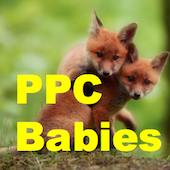The staff of PPC Hero has gotten together this month to answer a simple question: What advice would you give to someone brand new to PPC?
When starting out in PPC, your best quality will be sticking to best practices . Don’t try to stray away from this for a while. You may see more experienced PPC managers blogging about really cool concepts that think outside the box, but you need to get your feet planted firmly on the ground before trying out that kind of stuff. In addition to this, make sure you don’t over optimize. That’s another quality that comes with being new: wanting to do SO MUCH work on your accounts to really prove yourself. While every account is different, they are mostly like cars in the way that they can drive themselves more than your newbie mind will want to believe. Give optimizations time to show the changes they’re making in the account so you can properly measure them. This will not only help your account stay healthy, but it will help you learn a lot!
When first learning PPC philosophies, strategies, tools, and techniques, it is easy to want to just go through the motions of what you know to be best practices. Going a step beyond what Amanda recommends above, though, is knowing why you’re doing these things and what you anticipate the results to be. Keep your eyes and ears open for troubleshooting methods that others in the industry use when confronting issues like high CPL, low CTR, or lack of traffic volume. As you encounter these woes as a PPC padawan, you’ll gain a better instinct for what to do and when to do it. Think critically about how our “best practices” have become so and continue to investigate the outcomes of these methods. As you graduate to full PPC Hero status, you’ll not only know the what, but the how and why!
Don’t stop reading new blogs every day. You will get busy really fast when working as an account manager in paid search, but you can’t ever stop trying to learn new things. Don’t get ahead of yourself, of course! Try to keep yourself only getting alerts from blogs that aren’t pushing you toward optimizations or to try things you’re not ready for. There are brand new PPC resources being made available every day and even if they aren’t new features or techniques being discussed – you may remind yourself of something you’ve been meaning to try, or haven’t tried yet. Depending on how new to PPC you are – you may learn something you hadn’t run across yet period.
The first step is just to immerse yourself in the wealth of PPC knowledge out there. I’d definitely recommend you start reading as many blogs as possible, and to study up all the material that Google and Bing offer for passing their exams. A lot of people tend to focus too much on the certifications (not this guy) – they are a good tool to show you understand the basics of the material, but don’t get hung up on them. The key is that you understand the theory of why things happen in PPC. If you can grasp that, all other best practices just start to make sense. I’d also recommend you drop in on #ppcchat on Twitter- which covers a lot of the latest news and discussion.
(Ed. Note – Welcome to the blog, Secret Jake!)
While knowing the basics of PPC and best practices is the first priority of the job, you can learn a lot from your co-workers and others in the industry. There are so many ways to complete tasks and conduct different types of analysis. Ask your coworkers how they do something (even seemingly trivial tasks) and you might be surprised what you find. Even after thinking “I know how to do that five ways,” I’m still regularly surprised at all the other ways my fellow account managers work. Sometimes you even get lucky and find a completely different angle to analyze your accounts or find new ways to test your ideas. Besides being a better account manager, this improves your understanding of PPC in general.
Always think about user intent while you’re learning about what we do in PPC. There’s so much jargon, even a simple conversations can get overwhelming. While you’re learning about metrics and networks and that “enhanced” sometimes doesn’t really mean “enhanced,” try to remember that everything we do is rooted in someone searching for something (unless it’s display, but that’s a whole different ballgame). Don’t let the process of sorting through average position and bid changes cloud the ultimate aim of our type of marketing. Someone searching “hot fudge” could be looking for recipes or stores nearby or the old children’s show from Detroit in 1974. All of the optimizations and analysis that we do are fun in and of themselves, but they all have a common aim: be there to answer when a searcher has a question.
Are there any tips that you have for people new to the world of PPC? We get comments from our new readers all of the time, so we wanted to put together some of our thoughts on how to be successful coming out of the gate. The details will come as long as you have the correct approach and truly consider motivation.




